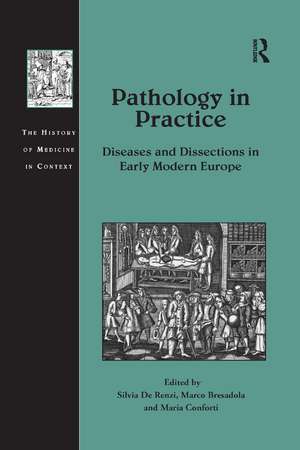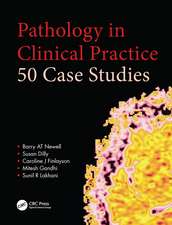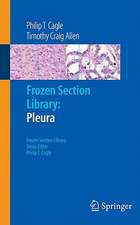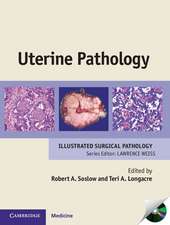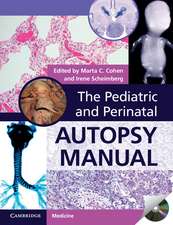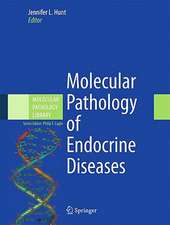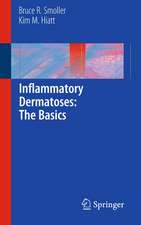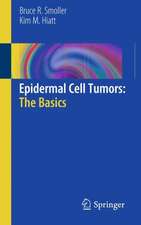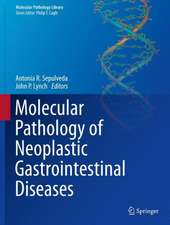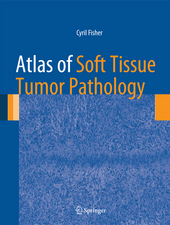Pathology in Practice: Diseases and Dissections in Early Modern Europe: The History of Medicine in Context
Editat de Silvia De Renzi, Marco Bresadola, Maria Confortien Limba Engleză Paperback – 12 dec 2019
Din seria The History of Medicine in Context
-
 Preț: 334.17 lei
Preț: 334.17 lei -
 Preț: 311.41 lei
Preț: 311.41 lei -
 Preț: 325.55 lei
Preț: 325.55 lei - 8%
 Preț: 376.64 lei
Preț: 376.64 lei - 16%
 Preț: 338.33 lei
Preț: 338.33 lei -
 Preț: 489.26 lei
Preț: 489.26 lei -
 Preț: 492.53 lei
Preț: 492.53 lei -
 Preț: 469.34 lei
Preț: 469.34 lei - 18%
 Preț: 1000.27 lei
Preț: 1000.27 lei -
 Preț: 323.23 lei
Preț: 323.23 lei - 30%
 Preț: 824.80 lei
Preț: 824.80 lei - 18%
 Preț: 1054.71 lei
Preț: 1054.71 lei -
 Preț: 489.26 lei
Preț: 489.26 lei - 20%
 Preț: 819.35 lei
Preț: 819.35 lei - 26%
 Preț: 323.75 lei
Preț: 323.75 lei -
 Preț: 497.92 lei
Preț: 497.92 lei - 31%
 Preț: 764.20 lei
Preț: 764.20 lei -
 Preț: 469.34 lei
Preț: 469.34 lei -
 Preț: 486.76 lei
Preț: 486.76 lei - 28%
 Preț: 823.44 lei
Preț: 823.44 lei - 5%
 Preț: 464.79 lei
Preț: 464.79 lei - 18%
 Preț: 1009.74 lei
Preț: 1009.74 lei - 18%
 Preț: 1054.71 lei
Preț: 1054.71 lei - 17%
 Preț: 346.02 lei
Preț: 346.02 lei - 5%
 Preț: 1158.84 lei
Preț: 1158.84 lei -
 Preț: 489.26 lei
Preț: 489.26 lei -
 Preț: 469.34 lei
Preț: 469.34 lei - 18%
 Preț: 1110.92 lei
Preț: 1110.92 lei - 18%
 Preț: 1055.51 lei
Preț: 1055.51 lei -
 Preț: 469.34 lei
Preț: 469.34 lei - 31%
 Preț: 765.04 lei
Preț: 765.04 lei -
 Preț: 489.26 lei
Preț: 489.26 lei - 18%
 Preț: 1008.17 lei
Preț: 1008.17 lei - 18%
 Preț: 1006.77 lei
Preț: 1006.77 lei - 18%
 Preț: 1054.71 lei
Preț: 1054.71 lei
Preț: 385.19 lei
Nou
Puncte Express: 578
Preț estimativ în valută:
73.71€ • 80.04$ • 61.92£
73.71€ • 80.04$ • 61.92£
Carte tipărită la comandă
Livrare economică 22 aprilie-06 mai
Preluare comenzi: 021 569.72.76
Specificații
ISBN-13: 9780367880750
ISBN-10: 036788075X
Pagini: 246
Dimensiuni: 156 x 234 x 13 mm
Greutate: 0.35 kg
Ediția:1
Editura: Taylor & Francis
Colecția Routledge
Seria The History of Medicine in Context
Locul publicării:Oxford, United Kingdom
ISBN-10: 036788075X
Pagini: 246
Dimensiuni: 156 x 234 x 13 mm
Greutate: 0.35 kg
Ediția:1
Editura: Taylor & Francis
Colecția Routledge
Seria The History of Medicine in Context
Locul publicării:Oxford, United Kingdom
Cuprins
Part 1: Framing the Practice
1. Pathological Dissections in Early Modern Europe: Practice and Knowledge
Silvia De Renzi, Marco Bresadola and Maria Conforti
2. Humanist Post-Mortems: Philology and Therapy
Gionata Liboni
3. Organising Pathological Knowledge: Théophile Bonet’s Sepulchretum and the Making of a Tradition
Massimo Rinaldi
4. The Problems of Anatomia Practica and How to Solve Them: Pathological Dissection Around 1700
Marco Bresadola
Part 2: Multiple Pathologies
5. Post-Mortems, Anatomical Dissections and Humoural Pathology in the Sixteenth and Early Seventeenth Centuries
Michael Stolberg
6. Seats and Series: Dissecting Diseases in the Seventeenth Century
Silvia De Renzi
7. Visible Signs, Invisible Processes: Explaining Poison in the Late Seventeenth Century
Maria Conforti
8. Frederik Ruysch, Surgical Anatomy and the Amsterdam Republic of Medicine
Rina Knoeff
Part 3: Productive Dialogues
9. Pre- and Post-Mortem Inquiries: Assessing Poisoning in the Law Courts of Sixteenth-Century Rome
Elisa Andretta
10. Dissecting Pain: Patients, Families and Medical Expertise in Early Modern Germany
Annemarie Kinzelbach
11. Therapeutic Post-Mortems in and Around Eighteenth-Century Geneva
Philip Rieder
1. Pathological Dissections in Early Modern Europe: Practice and Knowledge
Silvia De Renzi, Marco Bresadola and Maria Conforti
2. Humanist Post-Mortems: Philology and Therapy
Gionata Liboni
3. Organising Pathological Knowledge: Théophile Bonet’s Sepulchretum and the Making of a Tradition
Massimo Rinaldi
4. The Problems of Anatomia Practica and How to Solve Them: Pathological Dissection Around 1700
Marco Bresadola
Part 2: Multiple Pathologies
5. Post-Mortems, Anatomical Dissections and Humoural Pathology in the Sixteenth and Early Seventeenth Centuries
Michael Stolberg
6. Seats and Series: Dissecting Diseases in the Seventeenth Century
Silvia De Renzi
7. Visible Signs, Invisible Processes: Explaining Poison in the Late Seventeenth Century
Maria Conforti
8. Frederik Ruysch, Surgical Anatomy and the Amsterdam Republic of Medicine
Rina Knoeff
Part 3: Productive Dialogues
9. Pre- and Post-Mortem Inquiries: Assessing Poisoning in the Law Courts of Sixteenth-Century Rome
Elisa Andretta
10. Dissecting Pain: Patients, Families and Medical Expertise in Early Modern Germany
Annemarie Kinzelbach
11. Therapeutic Post-Mortems in and Around Eighteenth-Century Geneva
Philip Rieder
Notă biografică
Silvia De Renzi teaches history of medicine at the Open University, UK.
Marco Bresadola teaches history of science at the University of Ferrara, Italy, where he is director of the MA in science communication.
Maria Conforti teaches history of medicine at Sapienza, University of Rome, Italy.
Marco Bresadola teaches history of science at the University of Ferrara, Italy, where he is director of the MA in science communication.
Maria Conforti teaches history of medicine at Sapienza, University of Rome, Italy.
Descriere
This book provides a fresh account of the dissections that took place across early modern Europe on those who had died of a disease or in unclear circumstances. It shows how autopsies informed the understanding of pathology of those involved, from medical practitioners' debates to laypeople’s experience of suffering.
